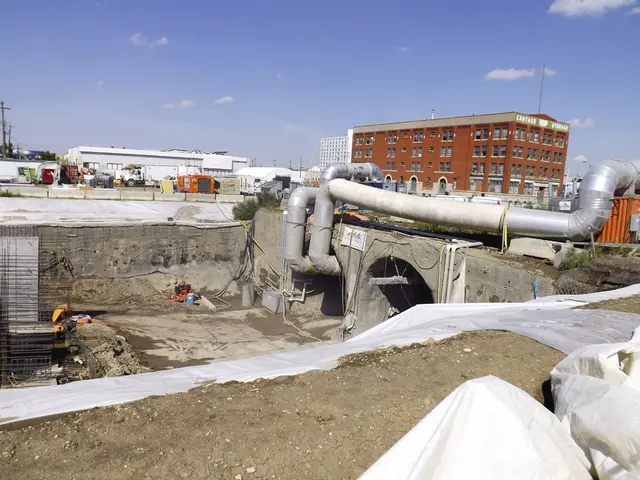The potential benefits of space travel for enhancing sustainability.
In the realm of technological advancements, the space industry is emerging as a significant catalyst for environmental sustainability and societal well-being. Malcolm McPartlin, co-manager of the Aegon Global Sustainable Equity Fund, believes that this trend will continue to shape the world in the coming years.
The space industry's technological developments have the potential to revolutionise environmental monitoring and protection. Space-borne technologies improve our ability to track climate change, deforestation, pollution, and natural disasters. This enhanced observation enables better management and protection of natural resources.
Innovations developed for space often lead to breakthroughs in energy efficiency, recycling, and sustainable materials. These advancements can be adapted for use on Earth, helping to reduce environmental footprints and improve energy efficiency.
Satellite technology also advances global communications, providing internet access to remote and underserved regions. This fosters educational, economic, and social development worldwide. McPartlin suggests that the provision of satellite-supported online connectivity to three to four billion people who currently lack it could have a profound impact on society.
Progress in space technology spurs broader scientific research and inspires STEM education, potentially leading to societal advancements beyond the space sector. McPartlin expects a wave of groundbreaking products and services in the coming decade due to the cost reduction in space technology.
The significant reduction in the cost of transporting cargo into space over the past decade is due to the concept of reusable rockets developed by SpaceX and advancing miniaturization of technology. This has made space travel more economically viable, with private capital investments improving its economics further.
Elon Musk's company SpaceX has received a contract from NASA to build a new lunar lander, and SpaceX is also set to take tourists into orbit in September, allowing them to orbit the Earth for several days. Jeff Bezos, founder of Blue Origin, launched a short trip into zero gravity from the grounds of his space company in late July.
The Aegon Global Sustainable Equity Fund manager believes that the technology provided by these companies will enable them to have a positive impact on climate protection measures, ESG reporting, and energy efficiency. Better global oversight of climate data and insights from environmental science can also improve these areas.
Moreover, McPartlin argues that the technology provided will enable companies to have a positive impact on societal issues such as education, trade, and economic prosperity. He suggests that satellite-supported online connectivity could make a significant difference for education, trade, and economic prosperity in developing countries.
In summary, the space industry is poised to drive technological progress with far-reaching positive effects on environmental sustainability and societal well-being. As we continue to explore the cosmos, we also stand to make significant strides in creating a more sustainable and connected world.
Read also:
- Innovative Garments and Accessories Producing Energy: Exploring Unconventional Sources for Renewable Power
- Irish and German governments will collaborate with ESB on a groundbreaking green hydrogen study.
- The Good Rice Alliance has given 'Ae' a high pre-evaluation ranking, as recognized by BeZero Carbon.
- Spheron and Nubila Combine Efforts to Equip Climate AI with Web3 Technology








